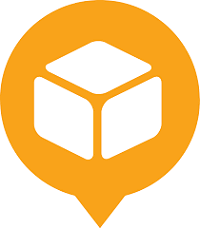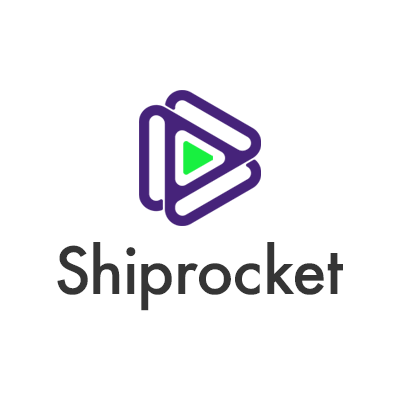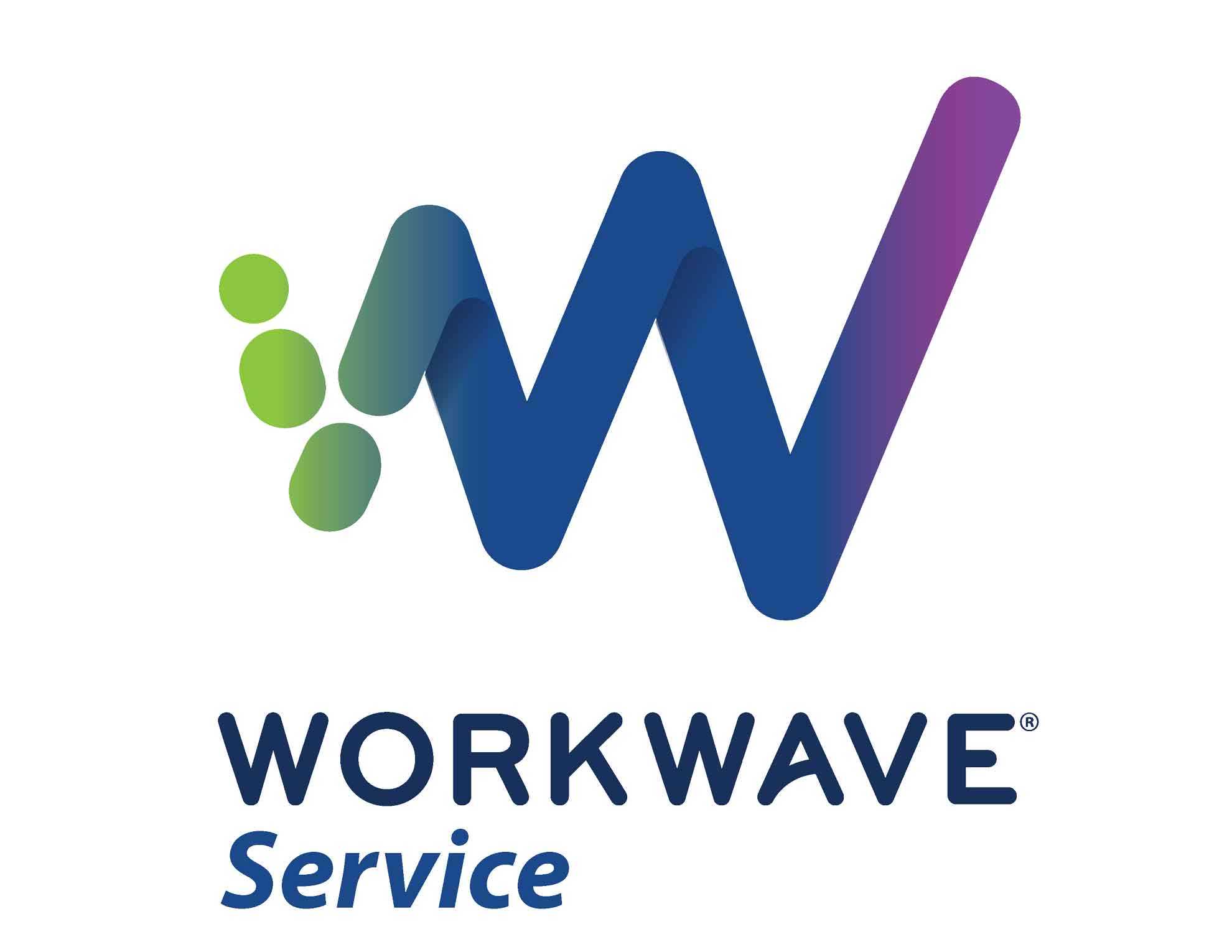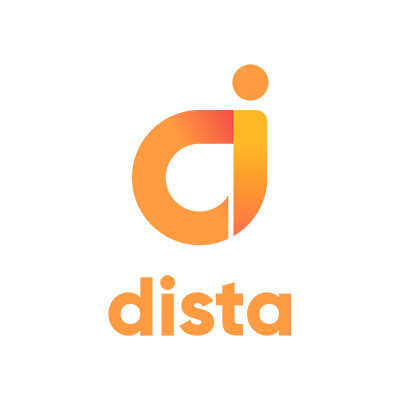Most delivery management software may be accessed from numerous devices and platforms. This means that you may access and use the software from any computer, tablet, or smartphone running Windows, iOS, or Android. This enables seamless communication and coordination across delivery teams, regardless of location or preferred device.
List of 20 Best Delivery Management Software
Deliforce solution for all your courier management needs. With real-time tracking, optimized routes and efficient navigation, Deliforce provides you with the tools to stay ahead of the competition. Experience seamless deliveries and prompt notificati...Read More Deliforce
Beans Route, the latest location intelligence solution powered by state-of-the-art AI technology. Streamline dispatch processes, optimize last-mile logistics, and efficiently manage driver schedules all in one comprehensive platform. With advanced ge...Read More Beans Route
Route4Me is route planning software built for both enterprises and small businesses. Utilizing global mapping data, users can effortlessly generate, share, and organize optimized vehicle routes. Featuring advanced functionality, Route4Me facilitates...Read More Route4Me
Routific is a route planning software designed for efficient and effective transportation and logistics operations. It offers a variety of features, including driver management, API integration, customer and order import, analytics and reporting, and...Read More Routific
TrackTrans TMS & ePOD is solution for fleet operators seeking to simplify their operations and increase productivity. Our comprehensive platform offers a range of essential features, including job management, invoicing, a client portal, proof of deli...Read More TrackTrans
Harold solution for automating your End-to-End Last Mile Logistics. Revolutionize your Last Mile Delivery process while boosting cost-effectiveness for your company and providing your clients with an unparalleled experience. Say farewell to manual ta...Read More Harold
AfterShip is a courier management system that simplifies your delivery operations with accurate data and timely updates. Utilizing advanced route optimization, it enables you to track your couriers exact location in real-time, while automatically sen...Read More AfterShip
MetaPack Delivery Manager is a ecommerce platform that streamlines shipping procedures for organizations. Boasting seamless compatibility with 350+ carriers, it offers convenient label printing, customizable delivery choices, and streamlined returns,...Read More MetaPack Delivery Manager
Enhance your field agents performance with FieldCircle is a software solution for streamlined operations. With features like live tracking, dispatching, scheduling, and invoicing, FieldCircle makes managing daily tasks effortless. Keep up with import...Read More FieldCircle
ShipRocket is a software solution that simplifies your shipping, fulfillment, and inventory management tasks. It enables you to save on costs and effortlessly connect with various shipping carriers. By leveraging ShipRocket, you can seamlessly ship w...Read More ShipRocket
Ivy Direct Store Delivery (DSD) software – solution for effortless order management, inventory processing, digital collections, and promotional activities. With up-to-date information and a centralized database, you can rely on Ivy DSD as your...Read More Ivy Direct Store Delivery
GetSwift - the leading delivery management solution that revolutionizes business operations for global success. Enhance efficiency and customer satisfaction with our versatile software, enabling you to effortlessly boost delivery capacity and transfo...Read More GetSwift
WorkWave is a highly regarded field service software that enhances efficiency and guarantees client satisfaction. Boasting a proven track record of catering to over 375,000 industry experts, it delivers a diverse array of specialized solutions to mee...Read More WorkWave
LogicSpice Delivery - the leading delivery tracking solution for your business. With cutting-edge technology and a team of experienced professionals, we are dedicated to providing a seamless delivery routing software that will revolutionize your oper...Read More LogicSpice Delivery
Dista Deliver is a delivery management solution for complete visibility and control over your delivery process. With real-time tracking of delivery agents, order dispatch optimization, and digital proof of delivery, our software simplifies operations...Read More Dista Deliver
Bringg is a highly effective and essential tool specifically designed for the delivery logistics industry. Companies like Coca-Cola and Walmart rely on Bringg to simplify processes such as on-demand deliveries, overseeing multiple fleets, providing d...Read More Bringg
PackageX Receive is the leading package management solution for your team. Simplify the task of scanning incoming and outgoing packages, facilitate touchless deliveries, and effectively oversee your mailroom. With PackageX Receive, your team can maxi...Read More PackageX Receive
RxMile solution for pharmaceutical logistics management. Our advanced software is specifically designed to elevate customer service and improve patient experiences. Say farewell to complex deliveries and welcome a simplified workflow with our custom...Read More RxMile
Quickdelivery is a software solution for optimizing your on-demand delivery business. Our cutting-edge platform is equipped with advanced features and the latest technology to streamline your delivery operations. Eliminate time-consuming manual proce...Read More Quickdelivery
AllRide Apps is a AI-powered software for Transport and Delivery companies. Our cutting-edge tools are tailored to meet the specific needs of businesses, enabling them to optimize operations, enhance sustainability, and effortlessly expand their oper...Read More AllRide Apps
Learn More About Delivery Management Software
- What Is Delivery Management Software?
- What Are The Recent Trends In Delivery Management Software?
- Benefits Of Using Delivery Management Software
- Important Factors To Consider While Purchasing Delivery Management Software?
- What Are The Key Features To Look For In Delivery Management Software?
- Why Do Businesses Need Delivery Management Software?
- How Much Time Is Required To Implement Delivery Management Software?
- What Is The Level Of Customization Available In Delivery Management Software?
- Which Industries Can Benefit The Most From Delivery Management Software?
- Conclusion
What Is Delivery Management Software?
Delivery management software (DMS) is a powerful tool that streamlines and optimizes the whole delivery process for businesses of all sizes. It serves as a centralized location for handling all parts of delivery, from order creation and dispatch to tracking and reporting. At its foundation, delivery management software automates and streamlines human activities such as routing, scheduling, and verification of delivery.
This saves organizations important time and resources while also improving the consumer experience. One of the most important advantages of DMS is its capacity to increase delivery efficiency. Businesses that provide real-time visibility into the delivery process can make more educated decisions about route planning and resource allocation, resulting in shorter delivery times and lower fuel costs.
DMS allows firms to monitor and measure key performance indicators (KPIs) such as delivery time, success rate, and customer happiness. This vital data can be used to discover areas for improvement and make better decisions for future delivery. Another notable characteristic of DMS is its ability to integrate with various business systems.
This enables seamless data sharing between departments, such as sales and customer service, resulting in a more coordinated and effective delivery process. Furthermore, DMS can help delivery teams and consumers communicate and collaborate more effectively. Real-time tracking and notifications offer clients with accurate delivery updates, while the program allows delivery drivers to discuss any potential concerns or delays.
What Are The Recent Trends In Delivery Management Software?
Delivery management software has become an essential tool for businesses of all sizes, as it helps streamline and optimize the delivery process. With the ever-evolving digital landscape, the delivery management software industry is also continuously advancing and incorporating new features and technology. In this section, we will discuss the latest trends in delivery management software to help you understand the current market and make an informed purchase decision.
1. Integration With Third-Party Platforms: One of the significant trends in delivery management software is its integration with third-party platforms and applications. This allows businesses to streamline their delivery process by connecting their software with other systems such as eCommerce platforms, CRM software, and payment gateways. This integration not only saves time but also eliminates errors and improves overall efficiency.
2. Real-Time Tracking And Analytics: With the increasing demand for real-time tracking and visibility, delivery management software now offers advanced tracking and analytics features. This enables businesses to monitor their deliveries in real-time, track the location of their drivers, and gather crucial data such as delivery time, customer feedback, and delivery efficiency. These insights can help businesses identify any bottlenecks or areas for improvement, leading to a more efficient delivery process.
3. Automation And Artificial Intelligence: Automation and AI are also making their way into delivery management software, helping businesses manage their deliveries more efficiently. With automation, tasks such as route planning, dispatching, and inventory management can be done automatically, saving businesses time and reducing human error. AI, on the other hand, is being used to predict delivery times accurately, optimize routes, and even detect potential issues that may arise during the delivery process.
4. Contactless Delivery Options: The ongoing global pandemic has accelerated the demand for contactless delivery options, and delivery management software providers are quick to respond. Many software solutions now offer features such as contactless delivery confirmation, contactless payment, and driver health status tracking. These features not only ensure the safety of customers and delivery personnel but also provide peace of mind for businesses.
5. Mobile Applications: Delivery management software is no longer limited to desktops or laptops; many providers now offer mobile applications for on-the-go management. These apps allow businesses to track deliveries, communicate with drivers, and access real-time data from anywhere, making the delivery process even more convenient and efficient.
Benefits Of Using Delivery Management Software
Delivery management software is an essential tool for firms who provide delivery services. This software streamlines the entire delivery process, including order administration, route planning, and tracking. It provides numerous benefits to enterprises of all sizes, making it an essential investment for those wishing to improve their delivery operations.
1. Efficient Order Management: Delivery management software allows firms to effortlessly handle and track orders from the moment they arrive until they are delivered. This removes the possibility of human error and ensures that all orders are processed correctly and on time.
2. Real-Time Tracking: One of the primary advantages of utilizing delivery management software is the ability to track deliveries in real time. This enables firms to bring customers up to date on the status of their purchases and make required adjustments to accommodate any unexpected delays.
3. Optimize Delivery Routes: Delivery management software automates route planning by taking into account traffic, weather, and delivery deadlines. This reduces time and gasoline costs while ensuring on-time deliveries.
4. Improve The Customer Experience: arrival management software gives clients with real-time updates on their orders, such as the projected arrival time and the delivery person's location. This amount of transparency improves the whole consumer experience and fosters trust in the brand.
5. Increased Efficiency And Productivity: By automating multiple activities, delivery management software allows delivery people to focus on delivering deliveries. This boosts efficiency and production, allowing organizations to manage more orders while maintaining quality.
6. Cost Savings: By optimizing routes and lowering fuel usage, delivery management software helps organizations reduce operational costs. It also reduces the likelihood of loss or damage to products throughout the delivery process.
7. Customization And Scalability: Delivery management software may be modified to meet the individual needs of a company, whether it is a tiny start-up or a major corporation. It can also be grown as the company expands, giving it a long-term option for managing delivery. Finally, delivery management software provides a full solution for firms seeking to streamline their delivery processes. It increases efficiency, lowers costs, and improves overall customer satisfaction. With its numerous features and configurable possibilities, it is an excellent investment for any firm wishing to improve its delivery operations.
Important Factors To Consider While Purchasing Delivery Management Software?
When it comes to handling deliveries for your company, having a dependable and efficient delivery management software is critical. With the growing demand for online shopping and fast deliveries, investing in the proper software can help you optimize your delivery procedures and, eventually, grow your business. However, with so many options available in the market, it might be difficult for purchasers to select the finest one. To help you make this decision, here are some key considerations to consider when selecting delivery management software.
1. Scalability & Customization: Before committing to any delivery management software, make sure it can meet your present and future company needs. The program should be scalable enough to manage an increase in orders and extend into new markets. Additionally, it should offer customization choices to match your individual delivery needs.
2. User-Friendly Interface: A user-friendly interface is essential for a seamless and efficient delivery management workflow. The software should be simple and straightforward to use, especially for non-technical people. This will save time and shorten the learning curve for your personnel, resulting in increased productivity.
3. Delivery Tracking And Real-Time Updates: Real-time updates and tracking capabilities are vital for delivery management software. This not only helps you to track delivery status, but it also keeps your customers up to date on the status of their orders. Look for software that includes GPS tracking and automated notifications to increase transparency and client satisfaction.
4. Integration Of E-commerce Platforms: If your company uses e-commerce, it is critical to select delivery management software that easily interfaces with your current e-commerce platform. This eliminates the need for human data entry and minimizes the possibility of errors.
5. Route Optimisation And Planning: Efficient route planning and optimization can dramatically cut delivery times and costs. Look for software that uses advanced algorithms to optimize delivery routes and recommends the most efficient path for each driver.
6. Proof Of Delivery & Electronic Signatures: With a proof of delivery and electronic signature option, you can keep track of deliveries while eliminating the need for physical paperwork. This not only saves time, but it also decreases the possibility of losing or damaging documentation.
7. Customer Support And Training: While some delivery management software may appear simple, it is always best to select a provider who offers enough customer support and training to help you get the most out of the product. This ensures a smooth transfer and adoption of the software into your company processes.
What Are The Key Features To Look For In Delivery Management Software?
Delivery management software is a valuable tool for automating and optimizing your delivery procedures. As a buyer, you must understand what vital aspects to look for when selecting the best software for your organization. Here are the key features to consider when purchasing delivery management software:
1. Route Optimization: One of the most significant aspects of delivery management software is the ability to optimise delivery routes. This enables the efficient and cost-effective planning of delivery routes, saving both time and money.
2. Real-Time Tracking: Another important aspect is the ability to track deliveries in real time. This allows you to track the status of your drivers and provide precise delivery estimates to your consumers.
3. Proof Of Delivery: The program should also be able to generate proof of delivery, such as customer signatures or images, which can be utilized for verification and record-keeping.
4. Delivery Scheduling: Look for software that makes it easy to schedule and assign deliveries to your drivers. This will allow you to better manage your resources and ensure that all deliveries are finished on schedule.
5. Customer Communication: Effective communication with consumers is critical throughout the delivery process, and excellent delivery management software should allow you to send automated updates and notifications to keep them informed.
6. Inventory Management: For firms that handle inventory, it is critical to select software that includes inventory management features. This allows you to better track and regulate your inventory levels.
7. Analytics And Reporting: Detailed analytics and reporting options can provide significant insights into your delivery processes, allowing you to pinpoint areas for improvement and make data-driven decisions.
8. Mobile Compatibility: With the proliferation of mobile devices, it is critical to select software that is compatible with them. This enables easy access and management of deliveries while on the go.
9. Integration With Other Systems: Look for software that can work seamlessly with your existing systems, such as eCommerce platforms, to ensure smooth and effective operations.
10. User-Friendly Interface: Finally, the software should have an intuitive interface that is simple to explore and understand. This will save you time and resources in educating your employees while also ensuring a smooth software uptake.
Why Do Businesses Need Delivery Management Software?
Businesses require delivery management software to optimize their delivery processes, increase efficiency, and give a better client experience. This program automates and simplifies the entire delivery process, from order placement to final delivery, making it an indispensable tool for businesses of all sizes. One important reason why organizations use delivery management software is to better manage their delivery operations.
This program optimizes delivery routes, reduces delivery times, and ensures prompt delivery to clients, thus enhancing overall efficiency and lowering costs. Furthermore, delivery management software enables real-time tracking and communication, giving businesses and customers total visibility into the delivery process. This not only increases openness, but also enables better control of any delivery issues or delays.
Another advantage of delivery management software is that it connects with other business systems, such as inventory management and order processing, resulting in a more efficient flow of information and less manual data entry. This connectivity also allows firms to track inventory levels and manage goods more efficiently, reducing stockouts and increasing inventory turnover.
Furthermore, delivery management software has comprehensive analytics and reporting capabilities, giving firms important insights into their delivery operations. This data can be used to identify areas for improvement and optimize routes and schedules, resulting in improved customer service and higher profitability.
Overall, delivery management software is vital for organizations that want to remain competitive in today's fast-paced industry. It simplifies delivery operations, boosts customer satisfaction, and increases efficiency and cost-effectiveness. Businesses that invest in such software may ensure seamless and successful delivery operations, resulting in increased growth and success.
How Much Time Is Required To Implement Delivery Management Software?
The implementation time for delivery management software varies according to the program chosen and the complexity of the company's delivery processes. The implementation procedure can last anything from a few weeks to many months. The first step in deploying delivery management software is selecting an appropriate software solution.
This can include studying several possibilities, comparing features and cost, and speaking with vendors to determine which software will best match the company's requirements. This process can take several weeks to a month or more, depending on the company's specific needs. Once the software has been selected, the following step is to configure and personalize it for the company's specific delivery methods.
This can include designing delivery zones, establishing delivery timetables, and connecting with current systems. Depending on the intricacy of the company's delivery systems, this stage can take anywhere from a few weeks to many months. After the initial setup is complete, staff are often trained and onboarded to ensure that everyone is comfortable with the program and understands how it fits into their workflow.
This stage can take anything from a few days to several weeks, depending on the size of the organization and the number of personnel that need to be taught. It is worth noting that some delivery management software suppliers provide support and guidance during the deployment process, which can help to streamline the process and shorten the time required. Furthermore, some software solutions include pre-built connectors with prominent e-commerce platforms and shipping suppliers, which can help speed up the deployment process.
What Is The Level Of Customization Available In Delivery Management Software?
When it comes to delivery management software, personalization is a crucial consideration. This refers to the software's ability to be customized to meet the unique needs and processes of a particular firm. The level of customization available in delivery management software varies according to the vendor and the individual capabilities supplied.
Most delivery management software provides rudimentary customisation, allowing customers to create branding, logos, and color schemes. This helps to provide a cohesive and professional appearance for the software. Some software may also allow you to customize fields and data input choices to meet your company's specific requirements.
This can simplify data entry and guarantee that the program captures all of the information required for effective delivery management. For firms with more sophisticated operations, advanced customization features may be available. This may include the ability to design bespoke processes, automate certain tasks, and interact with current systems and software.
These extensive customization options can significantly increase the software's capabilities and general efficiency. Potential customers should carefully consider the level of customisation provided by different delivery management software suppliers.
Consider your company's specific requirements and operations to determine which software provides the best fit in terms of customization choices. This will ensure that the software meets your company's specific needs and maximizes its potential for success.
Which Industries Can Benefit The Most From Delivery Management Software?
distribution management software is a strong tool that may help organizations of all sizes streamline and optimize their distribution operations, lowering costs and increasing productivity. While the benefits of this software are obvious for any firm that provides delivery services, specific sectors can profit even more from its use.
1. Retail & E-commerce: The retail and e-commerce industries are fast-paced, relying significantly on timely and correct delivery to keep customers happy. Order fulfillment operations can be improved with delivery management software, which automates duties including route planning, dispatching, and real-time delivery tracking. This allows businesses to deliver products to their customers in a timely and transparent manner, hence improving customer experience and loyalty.
2. Transportation & Logistics: Transportation and logistics companies handle a high volume of deliveries, rendering them prone to human error and delays, resulting in disgruntled consumers. Delivery management software offers transportation and logistics organizations a single platform for managing and tracking their fleet, optimizing routes, and tracking delivery progress. This reduces expenses, improves efficiency, and increases customer pleasure.
3. Food And Groceries: Delivery The food and grocery market is quickly developing in the digital age, with an increasing demand for on-time and precise delivery services. Delivery management software provides restaurants and food delivery services with real-time GPS tracking, automatic dispatching, and optimized route planning for their delivery fleet. This results in faster and more efficient deliveries, which leads to satisfied consumers and improved sales.
4. Healthcare Delivery Management: software can also help the healthcare industry by simplifying medical supplies and equipment deliveries. This program allows healthcare facilities to ensure that vital products such as prescriptions, medical equipment, and test samples are delivered on schedule to patients, hospitals, and pharmacies. This can dramatically improve patient care while reducing potential delays or errors.
5. Field Services & Maintenance: The field services and maintenance sectors have the problem of organizing and managing several deliveries to various locations while keeping to tight deadlines. Delivery management software automates and optimizes the scheduling and dispatching processes, allowing field service specialists to deliver products and materials to project sites more efficiently. This leads to increased technician productivity and customer satisfaction.
Conclusion
Finally, selecting the appropriate delivery management software can significantly improve the efficiency and effectiveness of your business operations. By carefully examining your individual goals and priorities, as well as properly researching the various software solutions available, you can make an informed decision that will benefit your business in the long run. It's crucial to remember that delivery management software isn't one-size-fits-all.
As a result, it is critical to carefully assess the features and capabilities of each software to verify that they match your specific needs. Considerations include ease of use, customization choices, system integrations, and scalability. Another important factor to evaluate is the amount of customer support and training offered by the software provider.
A system with insufficient support and training resources can cause irritation and delays in deployment, hurting your business operations. Furthermore, it is recommended to use delivery management software with real-time tracking and monitoring features. This functionality can improve supply chain visibility and give useful information for making data-driven decisions. Finally, when picking delivery management software, consider the potential for future growth and expansion.
Selecting a system that can adapt and scale with your organization will save you time and resources in the long run. Overall, by taking into account the major factors listed above, you can make an informed selection and choose delivery management software that can improve your operations, increase customer happiness, and, ultimately, drive business success. We hope this buyer's guide has helped you find the proper delivery management software.
Delivery Management Software FAQ's
Can Delivery Management Software Be Accessed Across Multiple Devices And Platforms?
Is Delivery Management Software Future-Proof And Adaptable To Emerging Technologies Like Ai, Blockchain or Iot?
Delivery Management Software is designed to adapt and evolve alongside the continually changing technological landscape. Its cloud-based infrastructure allows for continual updates and the easy incorporation of future technologies such as AI, blockchain, and IoT.
These developments improve the software's capabilities, ensuring that it is future-proof and able to meet the changing needs of businesses and consumers. Delivery Management Software, with its flexibility, scalability, and new features, is well-equipped to meet future challenges and possibilities.
Is There A Free Trial Offered To Assess Delivery Management Software Before Committing?
Yes, many delivery management software firms provide a free trial period so that potential clients can evaluate the product before making a purchase. This trial period normally lasts 14-30 days and allows consumers to test the software's features and functionality. It's an excellent approach to determine whether the program fulfills your company's requirements before making a commitment.
Does Delivery Management Software Offer Data Security Features And Meet Regulatory Compliance Standards?
Most delivery management software includes data security features including encryption, firewalls, and user authentication. This ensures that important client information and transaction data remain secure from cyber attacks.
Furthermore, many software vendors follow regulatory compliance requirements like HIPAA and GDPR to protect data privacy and avoid legal ramifications. It is critical to investigate and select software that satisfies your industry's unique security and compliance standards.
Can Delivery Management Software Integrate Seamlessly with Existing Tools And Platforms?
Absolutely! Most delivery management software includes API interface features, allowing it to work easily with your current tools and platforms. This means you may continue to use your favorite accounting, inventory management, and communication tools.
while taking advantage of the delivery management software's features and functionalities. This connection creates a more streamlined and effective approach, saving you time and effort.






















